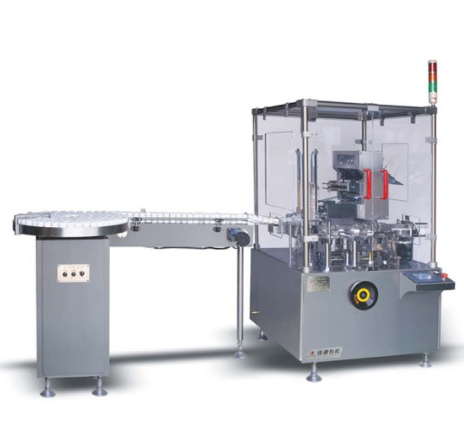In the era of rapid development in China, a large number of labor-intensive manufacturing industries that process OEMs take advantage of the "demographic dividend" to carry out large-scale production. Low worker prices have become a huge advantage for processing plants. A large number of orders have poured into Chinese factories. However, the disappearance of the demographic dividend This has pushed up the price of workers, and many companies are suffering from a "labor shortage" and are unable to recruit workers everywhere. Entrepreneurs in China's intelligent equipment manufacturing industry, such as Zhejiang Jiade Packaging Machinery Co., Ltd., realize that the high efficiency and low cost of "machine substitution" automated production are the key to winning future competition. They actively embrace the "Made in China 2025" strategy and seize the opportunity The market opportunities for automation and intelligent upgrading of China's factory equipment will help fuel the next rise of the "world's factory".
The disappearance of the demographic dividend has caused problems with the start-up of manual production lines. The rapid development of China's manufacturing industry. It can be said that labor-intensive manufacturing depends largely on the supply of cheap labor from "migrant workers". The cost and start-up problems caused by labor problems also determines the survival of these manufacturing companies. Unfortunately, it is the development of the manufacturing industry that has led to an increase in the income of a large number of first-generation "migrant workers", which has indirectly promoted the improvement of the education level of these migrant workers' descendants. It is difficult for the new generation of workers to accept low wages and poor working conditions. , coupled with the decrease in the population born in the 1990s under the "family planning" policy, means that the era of cheap labor has begun to decline.
In other words, on the one hand, there are fewer workers available for traditional manufacturing companies; on the other hand, the new generation of workers has higher salary requirements and is facing two major problems: "labor shortage" and "high costs." This problem, which directly determines the survival of labor-intensive traditional manufacturing industries, is "forcing" their managers to think about new ways of transformation and upgrading and opening up a "second curve" of enterprise development.
New policies are driving new industries, such as 5G, big data, artificial intelligence, cloud computing... infrastructure construction is "paving the way", the industrial automation robot industry is "running fast", and aerospace, automobile manufacturing, electronic information... The price of intelligent manufacturing equipment, which only high-end technology industries have the capital to use, has dropped to a level that is “reachable” for processing and manufacturing companies.
Industrial automation equipment has a series of advantages such as "less labor", "standardization", "no fatigue", "no emotion"... high output efficiency, stable product quality, low labor cost, less labor use, and even "no one" "Factory" is no longer afraid of the artificial impact of the epidemic, and instantly hits the sore spot of entrepreneurs in labor-intensive traditional manufacturing industries. Embracing the transformation of industrial automation is the bargaining chip to win future competition and cope with complex situations.
Intelligent equipment companies promote the automation upgrading of the manufacturing industry. Guangdong, which has a large number of contract processing companies, is most deeply affected by the disappearance of the demographic dividend. From Dongguan's "machine replacement" to Shenzhen's "empty cage and bird replacement", and then to the inward migration of the contract processing manufacturing industry With this trend, many companies have embarked on the road of "intelligent manufacturing", which has also led to the rise of intelligent equipment manufacturing companies behind them.
Take Zhejiang Jiade Packaging Machinery Co., Ltd. as an example. Its founder has been deeply involved in the manufacturing industry for more than 20 years. He led the company to participate in the drafting of industry standards. Facing the strategic opportunity of "Made in China 2025", he entered the intelligent equipment manufacturing industry and launched the "Product High-speed Cartoning Machine". , multi-functional fully automatic cartoning machine, cartoning machine, folding machine, carton forming machine, material sorting machine, etc. "Dozens of varieties of packaging machine series, serving beauty, medicine, food, health products, daily chemicals, More than 1,000 customers in toys, consumer electronics, hardware, handicrafts, accessories, etc., have turned the company into a high-end intelligent boxing production line standard/customized equipment manufacturer that integrates "R&D, design, production, debugging, and after-sales"!
In the future, the automation upgrading of traditional manufacturing industries will be a general trend. More and more manufacturing entrepreneurs are awakening and hand over professional matters to professional teams to solve the problems of "lack of talent, limited funds, and misaligned plans" in enterprise automation transformation, and jointly promote the "world factory" "Move towards the "smart factory"!
